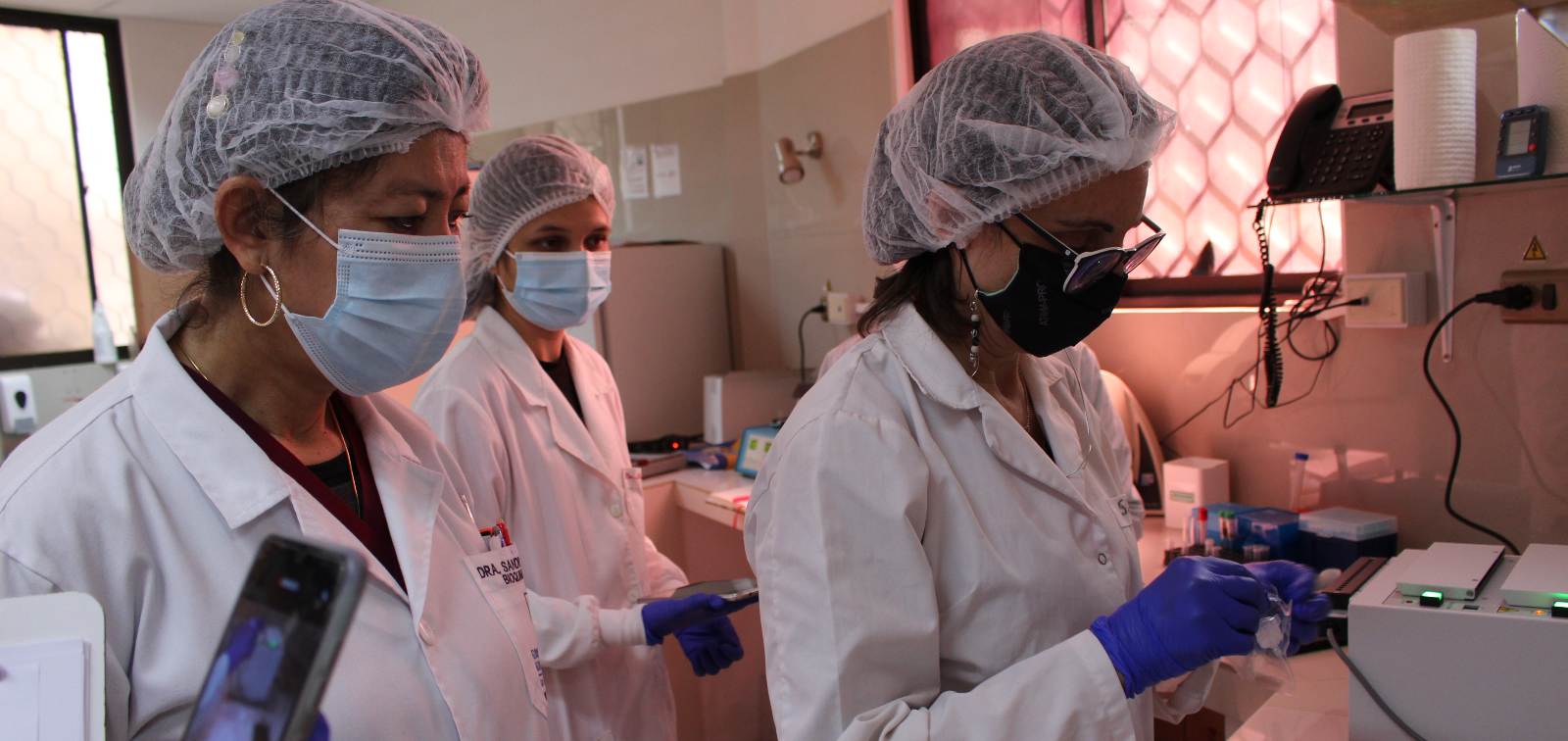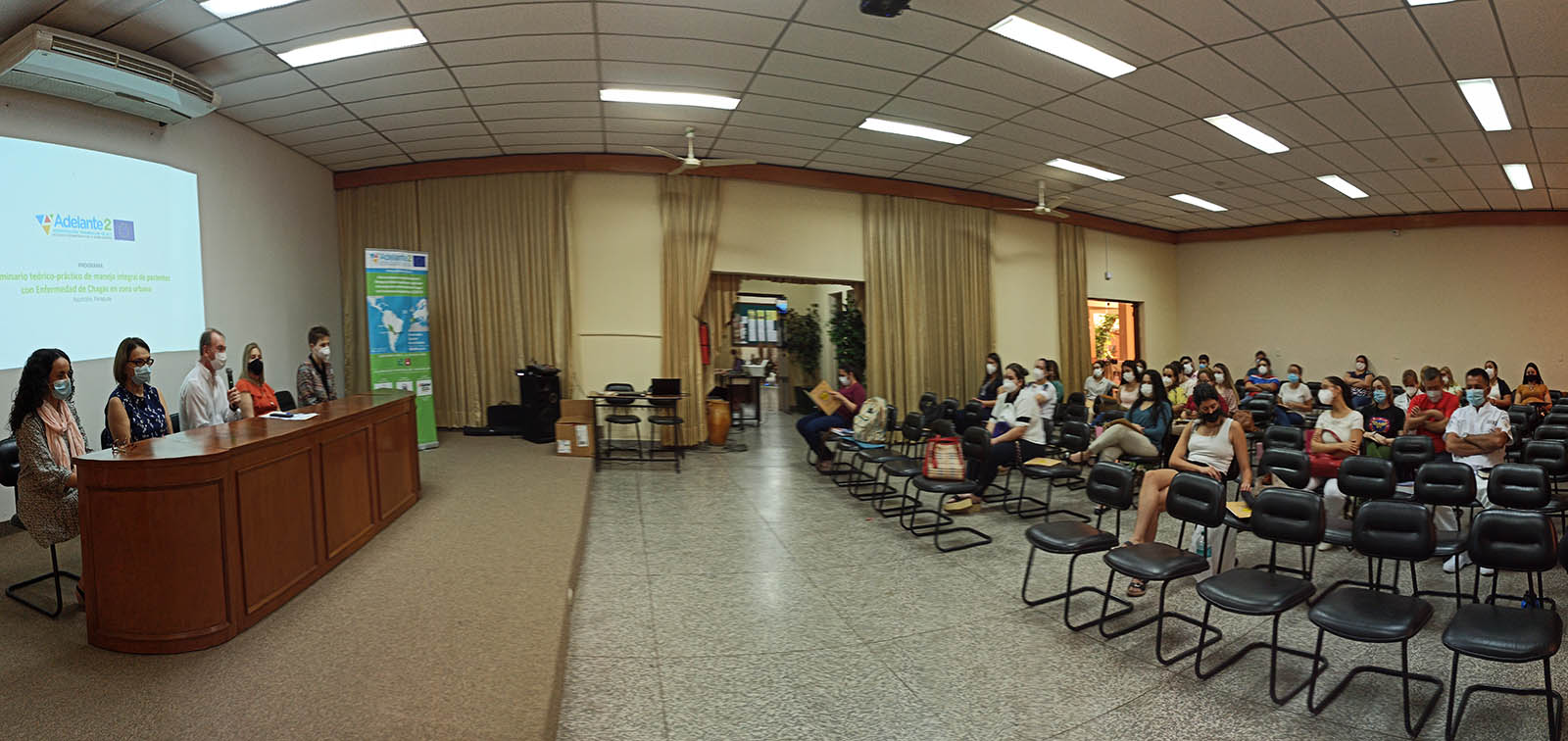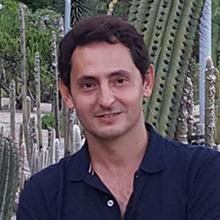ChagasLAMP Consortium Conducts Extensive Study of New, Faster and More Effective Diagnostic Methods to Interrupt Transmission of Congenital Chagas Disease
The aim of the study is to provide evidence to facilitate access to sensitive and rapid diagnosis of chronic and congenital Chagas disease via new, more practical algorithms.
07.07.2022
The ChagasLAMP consortium is advancing towards its goal of validating innovative technologies that are faster and more effective at diagnosing chronic and congenital Chagas disease in affected areas of Bolivia, Paraguay and Argentina. Molecular diagnostic kits arrived in all three countries this past month.
One of the major difficulties in the diagnosis of Chagas disease—both in adults in the chronic phase and in newborns—is the need for confirmatory tests that require a long interval between tests. The main risk is that affected people, many of whom live in remote areas, may not return for testing and care.
The ChagasLAMP consortium—coordinated by the Barcelona Institute for Global Health (ISGlobal) and funded primarily by the Global Health Innovative Technology (GHIT) Fund of Japan and co-funded by the Mundo Sano Foundation—aims to validate rapid and highly effective diagnostic methods for detecting chronic Chagas disease in pregnant women and congenital Chagas disease in their newborns. The project is being carried out in coordination with the Bolivian Ministry of Health and Sports and with support from the country’s departmental Chagas programmes, with the Paraguayan Ministry of Health and Social Welfare via its San Pablo Maternal and Children’s Hospital in Asunción and Villa Hayes Regional Hospital in the Chaco region, and with the Argentinian Ministry of Health and the Chagas Programme of Santiago del Estero Province. In addition to ISGlobal (Spain), the members of the consortium include CEADES (Bolivia), CEDIC (Paraguay), Nagasaki University (Japan), CONICET-INGEBI and the Mundo Sano Foundation (Argentina), and the companies Eiken Chemical (Japan) and AI Biosciences (United States).
The study will evaluate rapid serological tests for detecting chronic infections and innovative isothermal amplification of polymerase (LAMP) technology for detecting congenital infections. The LAMP method would provide a highly sensitive diagnosis, equivalent to that of existing PCR tests, while being easier to handle and even quicker to return results. Early detection of congenital infections would reduce loss to follow-up and provide early access to treatment for newborns, who would benefit from the very high efficacy of trypanocidal drugs in children under one year of age.
Julio Alonso Padilla, co-director of the Chagas Initiative at ISGlobal and coordinator of the project, commented: “ChagasLAMP is the largest study of its kind in terms of geographical scope for the review and application of diagnostic methods for Chagas disease.” Since the launch of the project in April 2021, the first phase of the study, which identified the optimal serological tools to use in each location, has been completed. “Now, with the arrival of point-of-care molecular diagnostic kits manufactured and supplied by the Japanese company Eiken, we will be able to achieve earlier detection and prevention of possible cases of congenital transmission of Trypanosoma cruzi, the parasite that causes Chagas disease, using more specific and sensitive methods at the hospitals participating in the project,” he added.
The new kits will be used to evaluate blood samples collected from newborns, both at birth and in their second month of life, using the LAMP method. The combined effort of the laboratory teams in the three countries will provide findings that are expected to validate the studied methods and support a change in the existing screening algorithm for congenital Chagas disease. Moreover, given that the recruitment of newborns is prompted by the diagnosis of a chronic infection in the mother, the use of rapid tests will also be validated in comparison with conventional ELISA serology techniques, which could also lead to a recommendation to change the detection algorithm for chronic Chagas disease.





